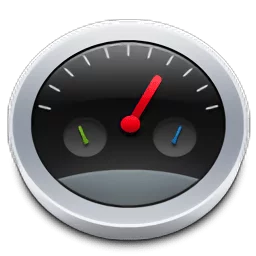Parkdale is a tiny (< 2 MB) stand-alone utility that measures real-world read/write speed of any drive—spinning HDD, SATA/NVMe SSD, USB stick or SD card—in seconds. No installation, no DLLs, no admin rights required: download, unzip, click Start and you get an instant chart plus plain-English stats you can paste into an e-mail or ticket.
Why people use it
- Zero learning curve – three big buttons: Quick, Full, Custom; results are shown in MB/s and IOPS the moment the test ends.
- Super-light – starts in under a second and runs happily on PCs with 1 GB RAM or Win-PE rescue sticks.
- Three test modes
- Quick – 32 MB linear sample, great for a rapid health check.
- Full – writes/reads up to the whole free space to spot slow zones or fake-capacity drives.
- Custom – choose file size, block size (512 B-64 MB), queue depth and thread count to mimic your real workload.
- Live graphs – see speed drops, spikes or thermal throttling as they happen.
- Copy-ready report – one click exports CSV or plain text with sequential/random read & write, IOPS, average and max response time.
What the numbers mean
| Metric | What it tells you |
|---|---|
| Sequential Read/Write (MB/s) | Speed when reading or writing large, contiguous files—important for movies, ISOs, backups. |
| Random 4 K Read/Write (MB/s or IOPS) | How fast the drive finds and updates lots of small pieces—key for OS, databases, games. |
| IOPS | Input/Output Operations per Second; higher = snappier system. |
| Response Time (ms) | Average latency from request to completion; lower is better, especially for SSDs. |
| % CPU used | Shows whether the drive or the computer is the bottleneck. |
Typical use-cases
- Verify a new SSD really hits the advertised 7 000 MB/s before the return window closes.
- Spot dying HDDs: if sequential speed drops below 60 MB/s or random 4 K falls under 0.5 MB/s, back up now.
- Compare USB sticks for the fastest boot drive.
- Show IT help-desk evidence that “slow PC” is actually a slow disk.
- Stress-test SD cards to weed out counterfeits that drop to 5 MB/s after the first GB.
Command-line switches (portable scripts)
Parkdale.exe -d C -s 1000 -b 4M -t 2 -c result.csv runs a 1 GB sequential test on drive C:, 4 MB blocks, 2 threads, and writes the report to result.csv—perfect for automated nightly checks.
Bottom line
If you need a fast, no-frills benchmark that fits on a rescue USB and speaks both “MB/s” and “IOPS,” Parkdale is the tool most admins keep one click away.
